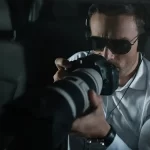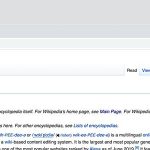Mirella’s dangerous flight across international borders
Mirella’s dangerous flight across international borders, with her daughter hidden under the car seat could have landed her in prison.
Even now it is difficult for Mirella Wawrzynski to come to terms with the fact she had to risk imprisonment to bring home her children from Poland. And now that they are back with her in Australia, she has to deal with money problems and the distress her children are going through after a bitter and traumatic marriage and a separation which poisoned their minds against her.
“Later, I will sort out my future. But first I have to make everything the best for the children,” she told The Weekly in an exclusive interview. In October 1991, two months after she had fled with them from her house in Brisbane, Mirella’s husband, Roman, picked up their children – Jessica, now nine, and Adrian, now seven – from school, saying they had dental appointments. It was to be a year before Mirella saw them again. The custody battle, in which Mirella received custody of the children, was a nightmare for her and shattered the world she had built for herself and her family in Australia. Mirella migrated here from Poland in 1974, when she was 19. She worked and saved hard and, within five years, bought a house. Then in 1983 she married a fellow Polish immigrant, Roman Wawrzynski.
“When we met I thought, ‘This is heaven, somebody from my own country with the same culture and traditions.’ But these things fade very quickly. All he wanted were drinking parties and holidays. I learned when I was in Poland looking for the children that where he comes from, women are nothing. They just look after the house, they can’t have their own work.” In 1988, their marriage ended. Mirella left her home because,she claimed, she felt threatened by Roman. She took out a restraining order against him, but Roman didn’t stay away. “He started being nice, so I let him see the children. When they came back they were hysterical. “That was before Christmas. Then the Christmas presents arrived and things were better. There were promises, so I thought, ‘Oh well, in a way, maybe it’s my fault, too.’ So I gave him another chance.
A week after we were together again I realised it was hopeless,” she said. “I asked him to get counselling but he said no, he wanted me to get counselling. It got to the stage where he was swear- ing at me all the time in front ofthe kids. It was no life for us.” In 1990, Roman had legal papers drawn up which would allow him to remain in her house. Mirella refused to sign the papers and began to make plans for a life without him.
Finally, in August 1991, Mirella left her home taking the children with her. Two months later, Roman, who had access to the children, picked them up early from school but, instead of returning them to Mirella, he flew with them to Poland on suspect passports. A major hurdle for Mirella in her custody fight for the children was the refusal of immigration authorities to issue new passports for them. ”We hoped maybe the police would bring the children back, or the courts, but then it got to the stage when we couldn’t get an answer from anyone,” she explained. “Friends said they would go and grab the kids, but how are you going to get them on the plane without passports?” After a year of fighting endless red tape, she contacted a private investigator, Keith Schafferius, of the International Detective Service in Brisbane.
Amonth later, Mirella made the first of two dramatic trips to Poland to bring home Jessica and Adrian. After her first trip to the city ofBytom, where Roman had taken them, she returned only with Adrian. Mirella and Keith Schafferius found the young boy walking to school. His head hung down and he was rugged-up against the bitter cold. “I called his name and 1 still wasn’t sure,” remembered Mirella. “I patted him on the arm and said, ‘Adrian, this is Mum.’ When he saw it was me, there was a big smile on his face and he just gave me his hand.” Her happiness was short-lived. When Adrian led Mirella to Jessica’s school, the little girl screamed at the sight of her and clung hysterically to her teacher.
“I asked Adrian to go and tell Jessie, ‘Mum’s outside and we are going to visit our uncle in Warsaw.’ 1 didn’t even say that 1 wanted to take them to Australia. “He went into the class and the next thing 1 heard Jessica screaming, ‘I don’t want to go to Australia.’ My heart, believe me, 1 can’t say how bad it felt. “Jessica told me afterwards that she was afraid of me. 1 asked why and she said her father and grandmother were saying bad things about me. “So 1 had to decide what I was going to do. Before 1 had left Australia, I’d thought to myself, ‘It’s either both children or neither.’ But then 1 saw Adrian’s joyfulness at the prospect of returning to Australia and 1 was stuck.” She decided to try once more to convince Jessica. Mirella approached her mother-in-law, whom she had never met. “I asked her directly, ‘Help me get them both out before my husband comes back and I will try to thank you in any way I can.’ But she said no, 1 would have to wait for Roman.” Faced with Jessica’s refusal, Mirella spoke to her husband. But he was adamant that the children could not leave Poland.
“I knew that 1 would have to take Adrian. His father was often drunk. He kicked Adrian. Jessie confirmed that that was true, and the boy is suffering now because of this treatment,” she claimed. “Plus, there is an older boy from Roman’s previous marriage who is being favoured by the grandparents. Adrian and Jessica were living separately, one with their grandmother, and another about 20 minutes’ walk away with their great-grandmother and great-grandfather. “I couldn’t leave my children in that place. If you stayed there for just one day you would understand. Bytom is a city ‘where birds don’t sing. It is the most polluted city in Poland, possibly in Europe, so it was not good for my children’s health.” Mirella returned to By tom to get Adrian, as the Australian consul in Warsaw had agreed to issue a passport to him. Six weeks after they brought Adrian home to Brisbane, Mirella and Keith Schafferius returned to Europe, accompanied by Keith’s son, Kamball, 11. They thought another child would reassure Jessica about returning to Australia.
When they arrived in Warsaw, they were confronted with a recent newspaper article about Mirella’s “abduction” of Adrian. ”We decided we would not be able to take her and 1 went to see a solicitor to see what my chances were of winning Jessie . through the courts. I learnt 1 had no chance because Roman had told a custody hearing [held after Mirella had taken Adrian] that we had an agreement that he would bring the children to Poland to live and I’d follow after I’d sold our house.” Disheartened, Mirella and Keith left Poland for Frankfurt. After a sleepless night, Keith came up with a new plan. He proposed driving back into Poland from Germany and smuggling what happen with Adrian in Australia? But it was the last chance so I agreed.” Keith warned Mirella that they were breaking immigration laws and could go to prison if they were caught taking Jessica out.
There was also the problem that when they had flown into Warsaw they had used up the only entry per- mitted on their 90-day visitors’visas obtained in Australia. Keith chose to cross the border at Gorlitz because it was remote and had poor communications, which meant an alert would take a full day to reach the border patrol. “Because we didn’t have visas, this time I told Mirella to just play stupid,” said Keith. Luckily, the trick worked.
The guards issued them with new tourist visas on the spot. Keith told Mirella to ask the border guards what they would do if a robber or a stolen car tried to drive through the post. “We would just shoot them,” the guards replied. But Mirella said she was reassured when the two men told her that they usually did not worry about checking cars crossing the border from Poland. “They told us to have a nice holiday.” Mirella, Keith and Kamball arrived in Bytom in the early hours of the morning and found Jessica at about two that afternoon, after hours of searching.
Mirella saw a small girl wandering slowly along the street, trailing her hand against the fence as she walked. “We drove fast and stopped in a driveway near her. I saw her face and it was very sad, I’ll never forget that. Then everything went so fast. I only remember seeing Mr Schafferius walking towards Jessie and next thing she was screaming.” In her aunt’s house in Brisbane, Jessica moved into her mother’s arms, as she remembered the meeting. “I was walking along and then this man was there and he blocked the way. He said, ‘Your mum wants to see you,’ and when I looked at Mum I screamed. I was scared,” she said. Mirella kissed the top of Jessica’s head and took up the story again. “Jessie called, ‘Grandma, Grandma,’ and all these people stopped.
I was dragging Jessica into the car and she was trying to get out. We sped off. I saw people looking and Jessie was screaming so I put my hand over her mouth. We didn’t know the road, we got lost and went into one-way streets.” Jessica interrupted again: “I thought the police were going to get us.
” When they escaped Bytom, Keith stopped the car and Mirella told Jessica: “Jessie, in didn’t love you I wouldn’t have come. I took Adrian because he said he wanted to come. But I just couldn’t leave you here because I love you so much.” Then Mirella told her that if they were to get out of Poland she must hide. But Jessica said she wouldn’t do it because it was a sin. “After she told me she was not going to hide, I decided I might as well tell her the truth about what was to come.
So I said, ‘Okay, Jessica, you can only go as far as the border because we haven’t got a passport for you and if they stop us you will be going back to your father and we will probably end up in jail.’ She didn’t say anything straightaway, but later asked, ‘Where am I to hide?’ She also asked me if she’d be able to shop and do the things she did before in Australia and she started smiling and I knew then that we’d be okay.”
Jessica interrupted again: “I didn’t cough or make any noise. But my mother sounded like she was sad.” It was dark when they reached the border and the Polish guards let them through without stopping them. But the Germans asked for passports. “However, seeing Australian passports they weren’t really interested. They wished us safe driving and we crossed the border,” Mirella recalled. “I felt wonderful.
Now that the children are home, Mirella has left her job so she can concentrate on helping Adrian and Jessica recover from their ordeal. Adrian still lapses into fits of crying, screaming, ”Why does everyone hate me? I want to die.” Jessica is often silent. There is still much she will not talk about.”We are having a very hard time, Adrian especially,” Mirella said. “But I have no regrets about doing what I did. “I’ve got a little money left from selling the house and I’ll put this away for their education. That’s all I can give them now.”
The journeys to bring Adrian and Jessica home have cost Mirella $30,000 and she now lives in Brisbane with her aunt, Stella Karob, who has supported her every step of the way. “Roman didn’t do what he did for the children’s sake,” Stella said. “He did it because it was the only way to hurt his wife.” Mirella said her experience should be a lesson to other women. “You never think this can happen to you. And when it does, the government cannot help. You are on your own.”
Last month, Roman was arrested on entering Australia. He appeared in Brisbane Magistrates Court and was charged with two counts of forge, two counts of utter and two counts of making false statements in relation to the children’s passports.
This article was originally Published Feb 1993 in the Australian Women’s weekly and written by Elizabeth Johnston.




